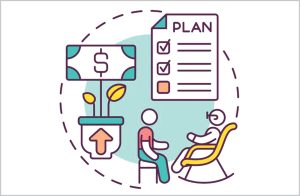Dementia, wandering and road complexity
Wandering and becoming lost is common among people with Alzheimer’s disease or other disorders causing dementia. This behaviour can happen in the early stages of dementia—even if the person has never wandered in the past. In fact, experts suggest that up to 70 per cent of people living with dementia may go missing at least once, with some at risk for multiple occurrences. Now, the researchers at University of East Anglia (UEA) have determined that getting lost is most likely to happen in areas where traffic networks are dense, complicated and/ or disordered. To get their results, researchers studied hundreds of missing person police reports for people with dementia and compared each case to the surrounding road network. They hoped their findings would help inform future safeguarding guidelines.
Vaisakh Puthusseryppady, from UEA’s Norwich Medical School, suggests, “It is known that people with dementia have difficulty navigating so we wanted to see whether there was a relationship between people going missing and the outdoor environment they went missing from. “We found that the higher the density of road intersections, the more complicated the road intersections are, and the less ordered or less grid-like the overall road network layout, the greater the risk for people with dementia to get lost.
Puthusseryppady thinks this is because each road intersection represents a point at which a person needs to make a critical navigation decision. The more intersections there are, the more complicated these intersections are, and the more disorganized the overall road network is—the bigger the problem for people with dementia and, of course, their families.
Source: University of East Anglia
Did bariatric surgery reduce COVID-19 risk?
Obesity is said to be the recipe for disaster for COVID-19 infection with its associated greater risk of HT, T2DM, and OSA. And, the COVID-19 pandemic is predicted to make the obesity pandemic worse. Lockdown restrictions lead to decrease in physical activity, limited access to healthy food, worsening mental health condition, and deterioration of economic condition and will only precipitate obesity faster. Also, reports from the USA, UK, and Italy that obesity has worsened COVID-19 in younger populations are worrying.
Although underused, Bariatric and Metabolic Surgery (BMS) is proven treatment for obesity but surgery has been delayed despite the fact that it may increase the disease load in these patients. There were also concerns that those who have had BMS are at higher risk of getting COVID-19.
The author asks: are patients with previous BMS safe in COVID-19 times? What the incidence of COVID-19 infection in previous BMS patients? Almost 1,500 past BMS patients were checked during the first peak pandemic period in London with only one patient, a female, who had BMS in the past presenting and being successfully treated. Our face-to-face clinics were abandoned at the time but there was a bariatric helpline phone. None of our BMS patients approached seeking help with COVID-19 related problems.
Two possibilities with these observations were suggested. Patients with BMS surgery are not at increased risk of COVID-19 infection compared with the general population. Patients with obesity who had BMS had decreased fat stores, which improved their comorbidities and hence less susceptible to severe outcomes if they caught COVID-19.
Source: Springer News
Low FODMAP diet is not for everyone
While changing what you eat will not cure you, an evidence-based approach called the three-phase, low FODMAP diet is the most frequently prescribed and most successful food plan prescribed to help relieve IBS symptoms. It addresses four types of fermentable carbohydrates: oligosaccharides (in wheat, beans, garlic and onions), disaccharides (in dairy, like milk and cream), monosaccharaides (excess fructose in mangoes and honey) and polyols (in avocados and mushrooms). It is not intended for people without IBS symptoms.
While avoiding these high FODMAP foods can be difficult, adding the carbohydrate groups back systematically to test tolerance can be challenging, reminds Harvard Health contributor, Emily Gelsomin. She suggests that experts seriously recommend avoiding the use of FODMAP for anyone with an eating disorder or those on restricted vegan or food allergy related diets to make sure they can meet their nutrition requirements.
Gelsomin also cautions that incorrect use of FODMAP may negatively impact a person’s intestinal health and has the chance to possibly worsen digestive issues over time and suggests that patients can simply cut back/reduce high FODMAP foods in their diet without entirely eliminating any food group as an alternative.
Source: Harvard Health Publishing














